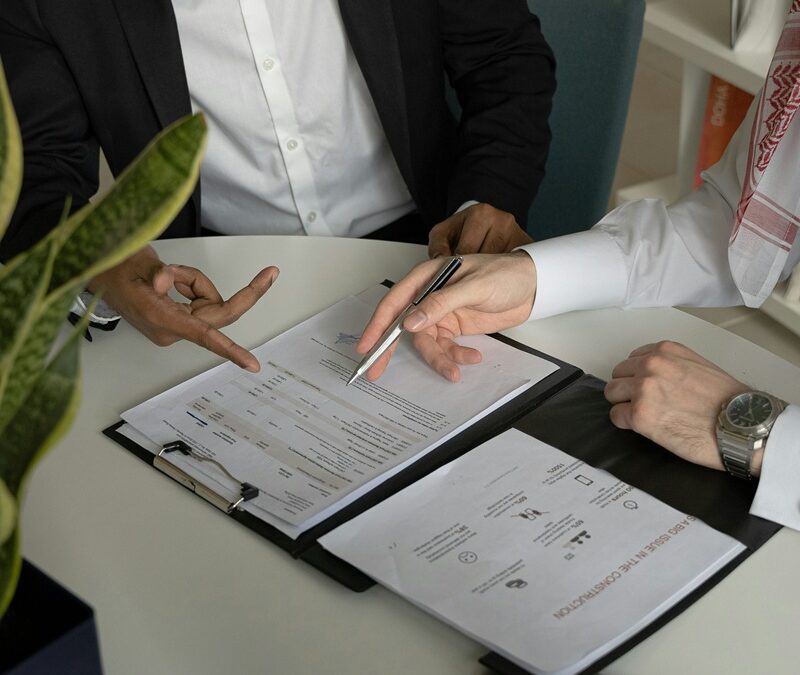What is Greenwashing in Business?
What is Greenwashing in Business?
What is Greenwashing in Business?
In case you fear you have hit on the wrong article, rest assured dear reader, this is not a guide on how to wash green stains out of your clothes or be more environmentally friendly when doing your laundry. No, this article covers greenwashing as in businesses who make claims about their environmental and sustainability credentials that turn out to be exaggerated, or in the worst cases, downright false. If you own an SME or are a managing partner of a law, accountancy, engineering, architecture, or other professional services firm, you may be wondering why you should bother reading an article about an issue that primarily concerns airlines, banks, and fossil fuel conglomerates. Well, nowadays, regulators are not just going after the big players. From fashion designers, manufacturers, to boutique investment companies, regulators are preparing to close in on those who are knowingly or unknowingly making claims and statements that amount to greenwashing. In addition, sustainability and the environment are also firmly on the agenda of consumers and investors. And increasingly, neither are interested in doing business with SMEs that make misleading claims about how they are protecting the planet and the creatures (including us humans) who reside on it.
Therefore, regardless of the size of your organisation or the market sector in which you operate, it’s time to buckle up and get ready to ride the sustainability rollercoaster at the same time as making sure regulators have no reason to pull you out of your seat and send you and your business into the abyss.
What is greenwashing in business?
At the recent COP27, the UN Secretary-General António Guterres declared that there must be “zero tolerance for net-zero greenwashing“. The issue for businesses, especially SMEs that do not have the luxury of large in-house legal and/or compliance teams is figuring out what the sin of greenwashing actually is so they can ensure they don’t commit it.
According to Greenpeace, greenwashing is:
“… a PR tactic used to make a company or product appear environmentally friendly, without meaningfully reducing its environmental impact.”
In September 2021, the UK Competitions and Markets Authority (CMA) published the Green Claims Code, which provides an excellent resource for SMEs concerned about inadvertently making claims that fall under the definition of greenwashing. It states:
“Environmental claims are genuine when they properly describe the impact of the product, service, process, brand or business, and do not hide or misrepresent crucial information.
Misleading environmental claims occur where a business makes claims about its products, services, processes, brands or its operations as a whole, or omits or hides information, to give the impression they are less harmful or more beneficial to the environment than they really are.”
What are some examples of greenwashing?
SMEs can learn a great deal from large, multi-national corporations when it comes to greenwashing. Below are some well-known examples that demonstrate what greenwashing comprises of:
- Volkswagen – the company ran a series of advertisements claiming their diesel internal combustion engine vehicles were not contributing to climate change because they used a technology that emitted low levels of air pollution and carbon dioxide. However, in 2015, investigators discovered the company had fitted around 11 million of its diesel cars with defective devices designed to cheat emissions tests. So far, the regulatory probes, fines, and lawsuits have cost the company €31.3 billion and counting.
- Walmart – the number one retailer in the United States has been accused of greenwashing for well over a decade. It has recently been pulled up on the fact its official strategy to reach net zero emissions by 2040 does not include Scope 3[1] emissions, despite these accounting for 95% of the company’s emissions, rendering the plan essentially useless.
- KLM – the airline industry is allegedly rife with greenwashing claims. In 2022, ClientEarth brought a legal claim against Dutch airline KLM over greenwhashing advertisements that they say were misleading in their claims concerning the sustainability of flying. A Solicitor for ClientEarth stated: “When it comes to offsets claims, the law on misleading marketing needs to be enforced. Trying to reassure customers that a small payment for tree planting or ‘sustainable’ fuel compensates for flight emissions undermines urgent climate action, is gravely misleading, and, … is unlawful.”
How is greenwashing regulated in the UK?
There are two main sources of greenwashing claims:
- statements made in marketing and advertising materials to attract customers; and
- disclosures made by companies in their corporate publications, which are then used by investors and others to make investment and financial decisions.
At present, there is no specific law against greenwashing in the UK. However, there are two pieces of legislation that prohibit companies from falsely marketing their products and/or activities as green. These are:
- The Consumer Protection from Unfair Trading Regulations 2008.
- The Business Protection from Misleading Marketing Regulations 2008.
There are also sector specific regulations such as the GB Energy Labelling Regulation 2017 which sets out general labelling obligations and gives the Secretary of State the power to introduce measures to improve the energy efficiency and sustainability of energy related products placed on the market and encourage the purchase of energy efficient products.
In addition, the advertising codes, comprising of the CAP Code and BCAP Code regulate advertising, requiring all advertisements to be legal, decent, honest, and truthful.
Regarding environmental claims, the Advertising Guidance provides:
- Adverts must make clear if an environmental benefit will only result from specific consumer action or behavioural change.
- If an advertiser references compliance with a particular standard, the advert should provide consumers with sufficient information to understand that standard.
- Claims that a product can be recycled must be substantiated and make clear any limitations to this.
When it comes to disclosures made in a company’s corporate materials, around the world, legal challenges are being brought under domestic company and fraud law by investors as well as others who rely on corporate disclosures, such as banks, insurers, and credit agencies. For example, in 2022, the Australian Securities and Investments Commission (Asic) fined Tlou Energy $53,280 (AUD) for sustainability claims it had made to the Australian Securities Exchange pertaining to the carbon neutrality of its electricity and its solar power generating capability.
Greenwashing – a warning
Although the above examples are international, UK SMEs need to be on notice that regulators, customers, and investors are taking greenwashing seriously. Last year, the Financial Conduct Authority proposed a package of new measures to clamp down on greenwashing in the financial sector. In 2021, the CMA put businesses on notice, stating it would be investigating environmental claims. And although Britain has left the EU, the European Commission’s proposed EU Green Claims Directive, which was published in March 2023, will put further pressure on the Government to enact specific greenwashing legislation.
The most important step for UK businesses to take right now in regards to greenwashing is to undertake a risk assessment exercise on all advertising, marketing, and investor material to check for potential greenwashing claims. Getting your house in order now concerning this issue means you can be confident that you are broadly in compliance with future regulations (with perhaps a few tweaks required to your practices and materials rather than a complete overhaul). In addition, checking your claims now will ensure your commercial reputation remains strong because your statements regarding environmental and sustainability will stand up to future scrutiny by customers, investors, and regulators.
To find out more about any matters discussed in this article, please email us at info@43legal.com or phone 0121 249 2400.
The content of this article is for general information only. It is not, and should not be taken as, legal advice. If you require any further information in relation to this article, please contact 43Legal.
[1] Greenhouse gas emissions are divided into Scope 1,2, and 3. Scope 1 refers to emissions that are a direct result of business operations, such as vehicles, heating buildings, and operating machinery. Scope 2 covers indirect emissions created by the production of energy the company purchases. Scope 3 refers to emissions released by consumers using a company’s products or suppliers making products that the organisation uses.











